If you have Graves’ disease then you should care a lot about the foods that you put into your mouth.
Why?
Because eating the right foods can increase your chance of putting your disease into remission.
Eating the wrong foods may prolong your disease state and increase your need for permanent thyroid treatments like radioactive iodine ablation and surgical removal of the thyroid gland.
If you want to do your best to prevent these treatments (which should be your goal), here’s what you need to know:
Eating for those with Active Hyperthyroidism
If you are someone with what I call active hyperthyroidism then you should be very aggressive about making changes to your diet.
You’ll know if you are actively hyperthyroid because you will be taking anti-thyroid medication like methimazole.
This state should be differentiated from those who have had their thyroid removed or ablated.
If you fit into that category then you are functionally hypothyroid and you need to read this article.
If you are actively hyperthyroid then keep reading!
If you fit into this category then you are in a great position because you have the opportunity to potentially put your Graves’ disease into remission and prevent the need for these life-altering treatments.
Here’s what we know about Graves’ disease remission and diet:
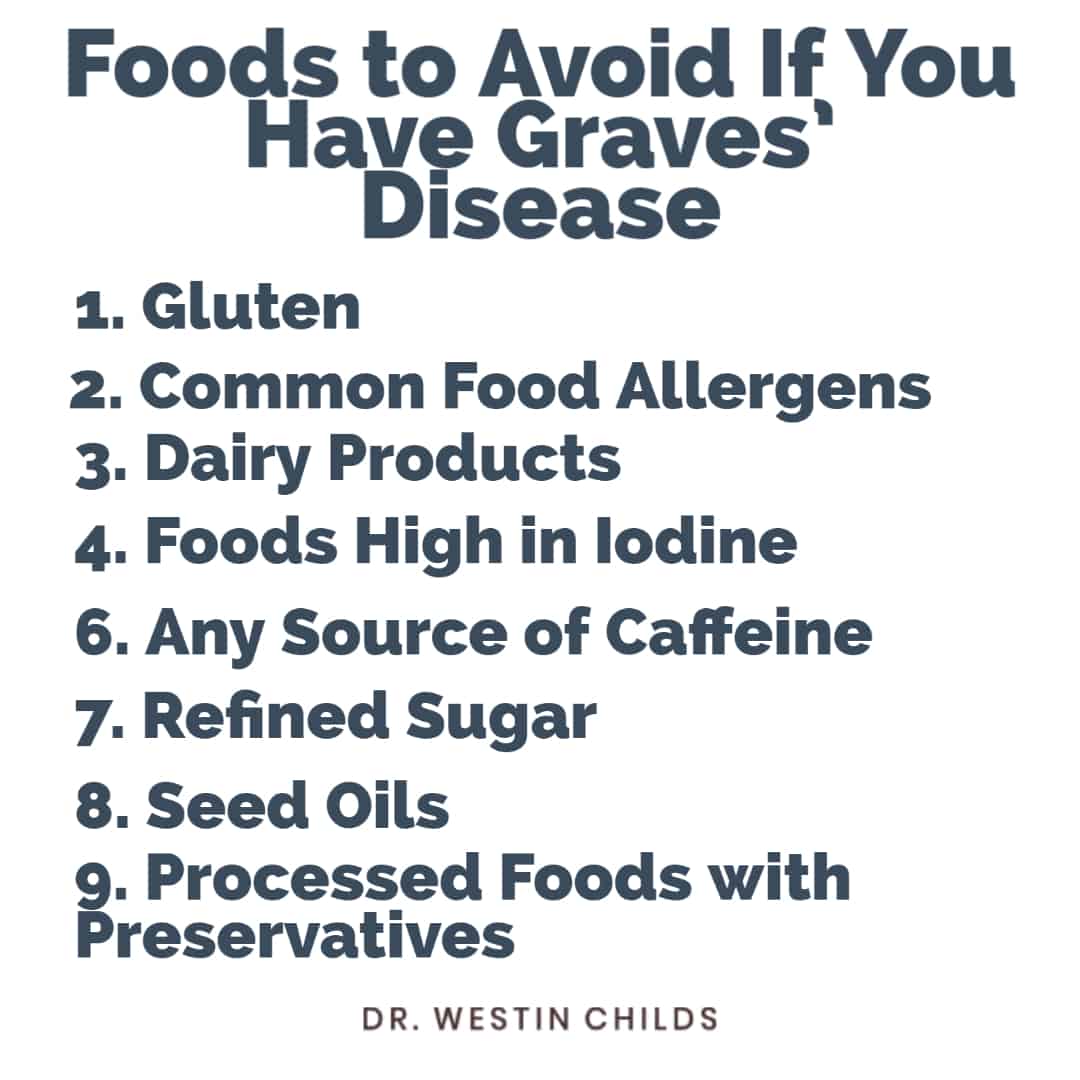
Research indicates that roughly 20-50% of Graves’ disease patients will experience spontaneous remission of their disease (1) if they take methimazole for about 12-18 months.
This is actually fairly reasonable, but making changes to your diet can do two important things:
#1. Increase your odds of putting your disease into remission.
And #2. Reducing the rate at which methimazole treatment is needed.
There’s no concrete data to support these claims, but it’s been my experience that they are generally true.
And because there’s virtually no risk in eating more healthy foods, why wouldn’t you give it a try?
If that’s the case, here’s what I recommend:
Foods to Eat
While changing your diet for Graves’ you should focus on eating certain foods and avoiding others.
The healthiest foods are those that are nutrient-dense and are considered whole food.
Here’s a list:
Vegetables:
Get at least 3-5 servings of vegetables each day with at least 1 full serving of brassica veggies.
Brassica vegetables contain glucosinolates which are sulfur-containing compounds that provide support to your liver which is critical in thyroid hormone metabolism.
And other vegetables provide nutrients, fiber, antioxidants, and anti-inflammatory compounds that support immune function.
All veggies are good, but here are some of the best:
- Broccoli
- Arugula
- Cabbage
- Cauliflower
- Collard Greens
- Asparagus
- Bok Choy
- Brussels Sprouts
- Kale
Fruits:
Don’t be afraid to eat fruits if you have Graves’ disease.
They are loaded with antioxidants and fiber and they taste delicious.
Aim to get at least 3-5 servings of fruit each and every day.
Any fruit will work, but here are some of my favorites for Graves’ disease patients:
- Apples
- Apricots
- Bananas
- Blackberries
- Dates
- Blueberries
- Cherries
- Strawberries
- Raspberries
And don’t forget 100% whole fruit juices as well:
- Orange juice – Contains naringin and naringenin
- Pomegranate juice – Contains
- Watermelon juice
- Pineapple juice
Juices contain super concentrated amounts of bioactive compounds compared to their whole food counterparts but make sure they are not processed and that they do not contain any added sugars.
Freshly squeed juice or cold-pressed juices contain more nutrients compared to juices that are pasteurized and processed.
Juices do contain a concentrated source of calories, but research shows that they won’t cause weight gain if they are consumed with a meal.
Protein:
You should consume at least 100 grams of quality protein each day (yes, even for women!).
This is probably the most important thing you can do to prevent the dreaded weight gain that tends to accompany long-term methimazole use.
Eating enough proteins means that you will keep your muscle mass where it needs to be to power your metabolism and improve your caloric burn, even while blocking thyroid function.
Protein consumption also promotes immune health (from the amino acids) and bone health.

Animal protein contains the highest ratio of muscle-building amino acids out there, but you can and should work in some plant sources of protein and fill in any remaining gaps with protein powders.
Animal protein sources:
- Beef, chicken, turkey, fish, eggs, pork (get the highest quality meat you can afford)
Plant protein sources:
- Chia seeds, hemp hearts, quinoa, and green peas
*note: plant sources of protein are less efficient compared to animal sources and contain more calories and fat per serving, but they do provide additional benefits.
Protein powders:
- Plant-based protein powders like pea, hemp, chia, and pumpkin tend to be best, but you may also be able to get by using whey protein if you tolerate it.
Fats:
Fats provide a dense source of calories which can provide constant energy throughout the day and promote more stable blood sugar.
They also support hormones, influence inflammation through their omega 3 and omega 6 content, and provide a source of fat-soluble vitamins.
This only applies if you eat the right fats.
Unfortunately, most Americans consume the most unhealthy types of fat in the form of vegetable oils (soybean corn, canola, etc.).
Instead of eating these inflammation-promoting fats, focus on the combination of healthy oils like:
- Grass-fed butter
- Coconut oil
- Extra virgin olive oil
And real whole food sources of fat like:
- Nuts and seeds (almonds, walnuts, chia seeds, flaxseeds, macadamia nuts, brazil nuts, etc.)
- Avocados
- Coconuts
- Olives
- Nut butters (avoid peanut butter)
- Hard cheeses (avoid soft cheeses)
- Greek yogurt
- A-2 protein milk (organic)
- 100% cacao (unrefined and non-alkalized)
- 70% dark chocolate or higher
My recommendation is to start with protein and work backward:
Focus on getting your 100 grams of protein in each day and then backfill the remainder of your food choices while putting preference of carbohydrates before fats.
If you add fats to your diet as whole foods, you’re less likely to promote weight gain and accidentally consume more than you need.
Use cooking oils sparingly, especially if you are actively trying to prevent methimazole-related weight gain.
Foods to Avoid
The most unhealthy foods for someone who has Graves’ are those that promote inflammation, rev up the thyroid, and are devoid of nutrients.
Here’s the list:
Gluten
Gluten isn’t a must-avoid food group for everyone, but it is true that patients with Graves’ disease experience problems with gluten more frequently than the average population.
This is probably because there is some crossover between the HLA genes that promote Graves’ disease and those that promote Celiac disease.
Regardless of the exact cause, there’s no question that you are at higher risk of developing Celiac disease if you have Graves’ disease.
For this reason, it’s a good idea for most patients with Graves’ disease to at least give gluten-free a trial run.
Doing so may improve your gut health which will increase nutrient absorption, balance neurotransmitters, and reduce systemic inflammation.
Dairy products
This is one where we need to lean on the studies done in different thyroid conditions, but it’s a good exercise.
We know in the autoimmune disease Hashimoto’s thyroiditis that avoiding dairy can reduce thyroid gland inflammation and help reduce thyroid antibodies.
I know what you’re thinking:
I don’t have Hashimoto’s disease so why does it matter?
Well, it matters because Hashimoto’s and Graves’ disease are two sides of the same coin.
One causes hyperthyroidism and the other causes hypothyroidism, but their underlying triggers are very, very similar.
Knowing this, we can extrapolate that if a food group causes problems for one, it will very likely cause problems for another.
And that is exactly what we see here.
Dairy tends to be a problem for patients with autoimmune thyroid disease primarily because of milk proteins and milk sugars.
These proteins and sugars can be hard to break down in the gut which ultimately promotes inflammation.
Avoiding all forms of dairy isn’t always necessary, but limiting your exposure to lactose and casein is often a good idea.
Foods high in iodine
If you have Graves’ disease then you’ve probably been told to avoid iodine 100%.
This recommendation is made because iodine consumption triggers the creation of thyroid hormone.
And you don’t really want to make more thyroid hormone if you already have more than you need.
While this is theoretically true, this only really occurs if you are consuming way more iodine than you need because the reality is that iodine is a nutrient that every human requires, even those with hyperthyroidism.
But it is true that you shouldn’t go out of your way to hit
Part of doing this just means paying attention to foods that contain a high amount of iodine.
Aside from fish and sea vegetables, the iodine content of everyday foods like milk, dairy, and eggs is not sufficiently high enough to cause problems so you don’t really need to stress about those.
The biggest offenders will come from seaweed and iodine-containing supplements.
Sources of caffeine (including other stimulants)
If you have Graves’ disease then your body is already in a heightened state due to the impact thyroid hormone has on the body.
And if you put any extra pressure or stimulation onto your body, you will tip the balance in favor of even more stimulation.
This can trigger a cascade of events leading to things like insomnia, heart palpitations, excessive sweating, and even more thyroid hormone production.
Avoiding this means avoiding stimulants of all types including coffee, caffeinated beverages, stimulating medications, or anything else that revs the body up.
Common foods allergens
You don’t have to avoid all common food allergens (1), but you should be aware that Graves’ disease (and hyperthyroidism in general) promotes the production of histamine.
And histamine is a highly reactive compound that gets triggered when you consume certain foods.
If this happens then you may experience the symptoms of histamine excess including things like:
- Flushing
- Heat intolerance
- Skin irritation
- And dilation of blood vessels
Many of these symptoms not only overlap with hyperthyroid symptoms but may make them worse.
Not everyone with Graves’ disease will experience excess histamine release, but it’s worth paying attention to if you find that you are highly reactive to anything that you eat.
Common allergens that may cause this problem include:
- Milk
- Eggs
- Shellfish
- Tree nuts
- Peanuts
- Wheat
- And soybeans
Refined carbohydrates & processed sugars
It’s definitely in vogue to hate sugar right now, but that’s for good reason.
Refined carbohydrates and processed sugars contribute to obesity, insulin resistance, and inflammation.
But don’t confuse these types of sugars and carbohydrates with whole food sources of carbohydrates and sugar like fruit.
It’s perfectly health to consume fruit and 100% fruit juice.
The same isn’t true of any food that has EXTRA sugar added to it.
This may include sugar-sweetened beverages (coke, Pepsi, etc.), certain fruit juices, some fruits (cranberries), breads, pasta, and so on.
Industrial seed oils
Seed oils are heavily processed fats that have made their way into just about every food you can think of.
Well, not every food, because whole foods don’t contain them, but if you are eating anything that’s processed or anything from a restaurant there’s a good chance it’s there.
And that’s unfortunate because these oils are high in omega-6 fatty acids, they may promote inflammation and can contribute to thyroid dysfunction.
And because there’s much better alternatives available, there’s really no good reason to keep these in your diet.
Ultra-processed foods
Ultra-processed foods promote inflammation, and gut damage, disrupt hormones, lead to obesity, and are devoid of essential nutrients.
Their consumption is associated with just about every chronic disease you can think of and Americans consume them at astonishingly high rates.
It’s estimated that up to 70% of the average American’s diet consists of ultra-processed foods which tracks perfectly with the rise in many chronic medical conditions.
You don’t have to remove these foods from your diet 100%, but you should focus on something that approximates the 80/20 rule or the 90/10 rule.
In other words, at least 80-90% of your diet should consist of real whole foods which leaves 10-20% for processed foods.
In a perfect world, you’d be able to avoid them all the time, but that isn’t always possible.
Alcohol
There’s really no good reason to consume alcohol if you have Graves’ but there are two big reasons you should avoid it if you have hyperthyroidism:
The first is that it can trigger hyperthyroid symptoms such as heart palpitations, tremors, and anxiety.
And the second is that it must be metabolized through the liver which is the same place where methimazole is metabolized.
Because it’s considered a toxin to the body, just avoid it 100% and call it a day.
Will Changing Your Diet Cure Graves’ Disease?
Maybe, maybe not.
But given that your only other alternative is to sit around and wait while you take methimazole, changing your diet seems like a pretty good option.
You simply can’t go wrong by eating more fruits and veggies, no matter how you slice it.
And doing so can help reduce inflammation which may act to treat the underlying cause of Graves’ disease which is inflammation and autoimmunity.
If you can do this, then you are one step closer to curing your condition.
But let me be clear:
There is no guarantee that changing your diet will put your disease into remission.
But your #1 goal, if you have Graves’ disease, should be to do everything in your power to reduce your risk of undergoing radioactive iodine ablation and/or surgical removal of the thyroid gland.
While diet is certainly helpful, there are supplements that can help as well.
And if you want to see a list of the strongest, check out this article next.
Scientific References
#1. https://www.ncbi.nlm.nih.gov/pmc/articles/PMC2111403/#__sec6title
#2. https://www.ncbi.nlm.nih.gov/pubmed/10931424
#3. https://www.ncbi.nlm.nih.gov/pubmed/11531931
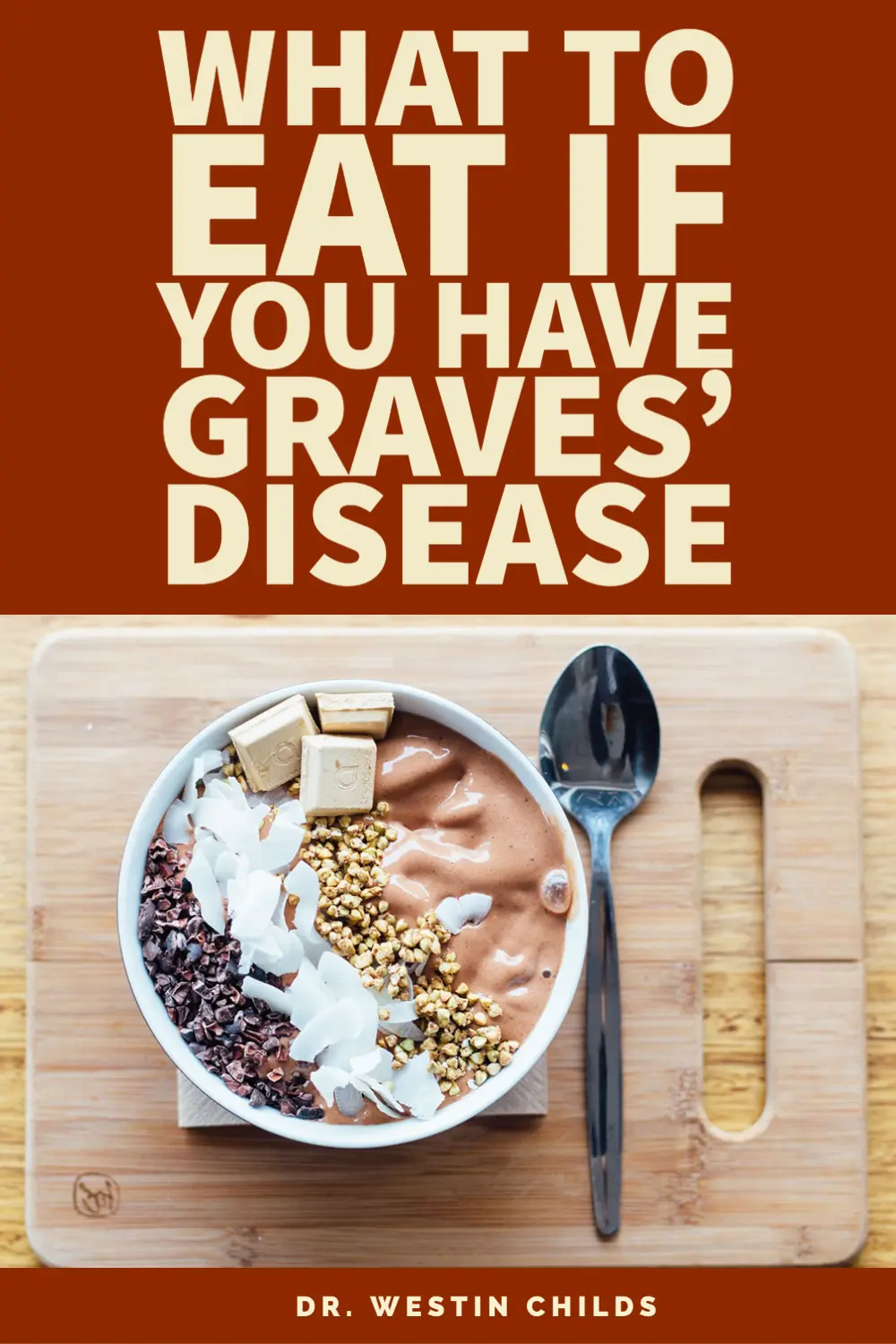
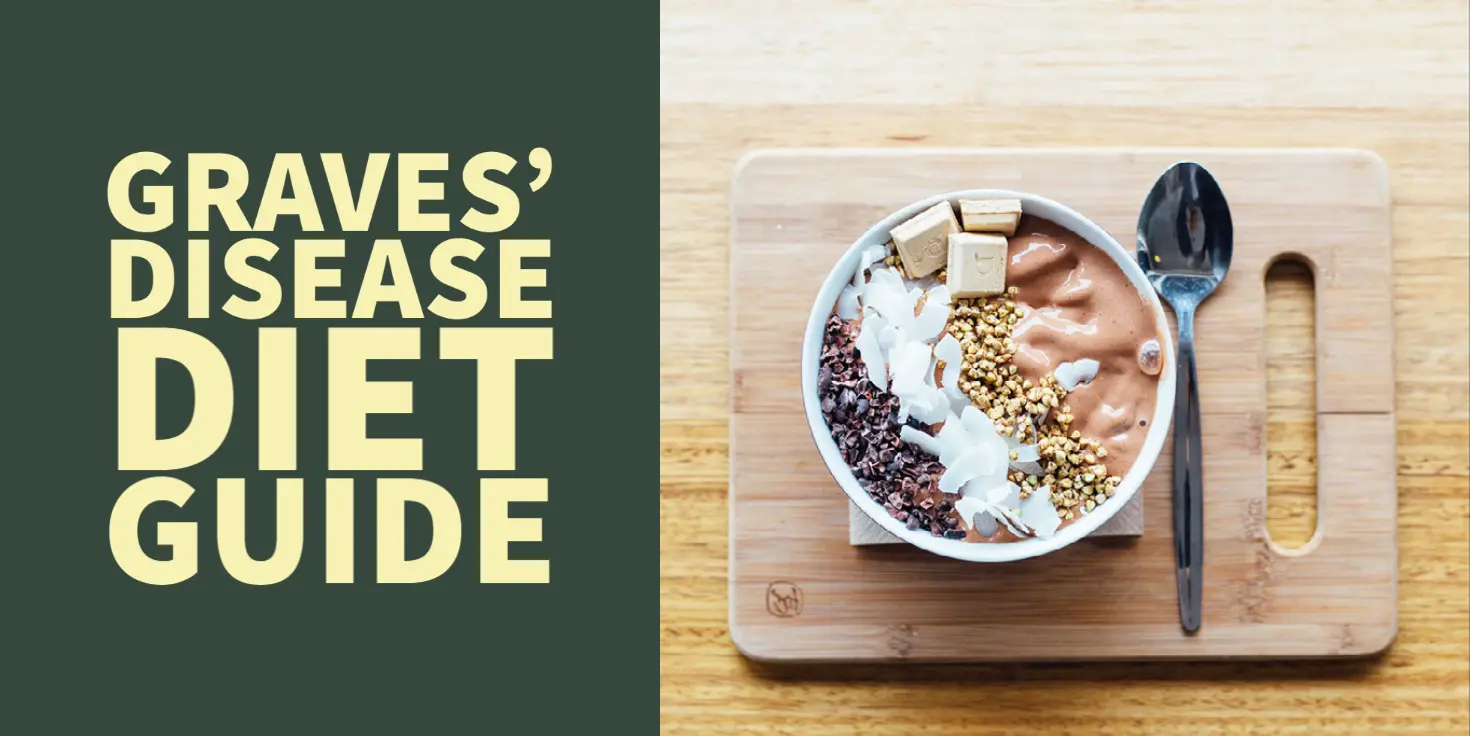
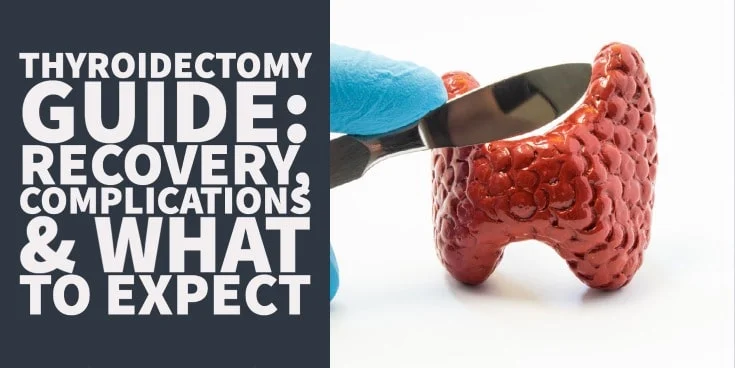
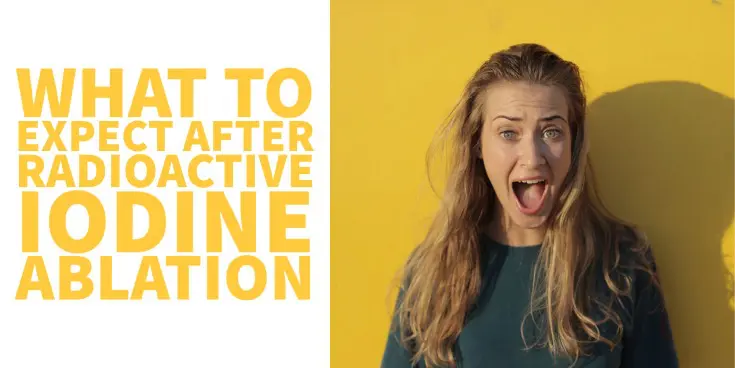
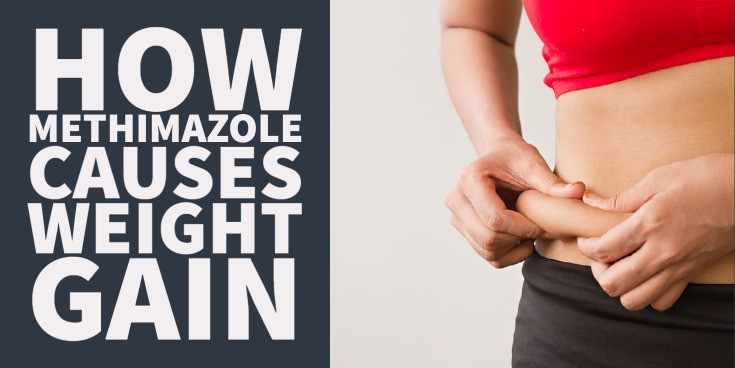

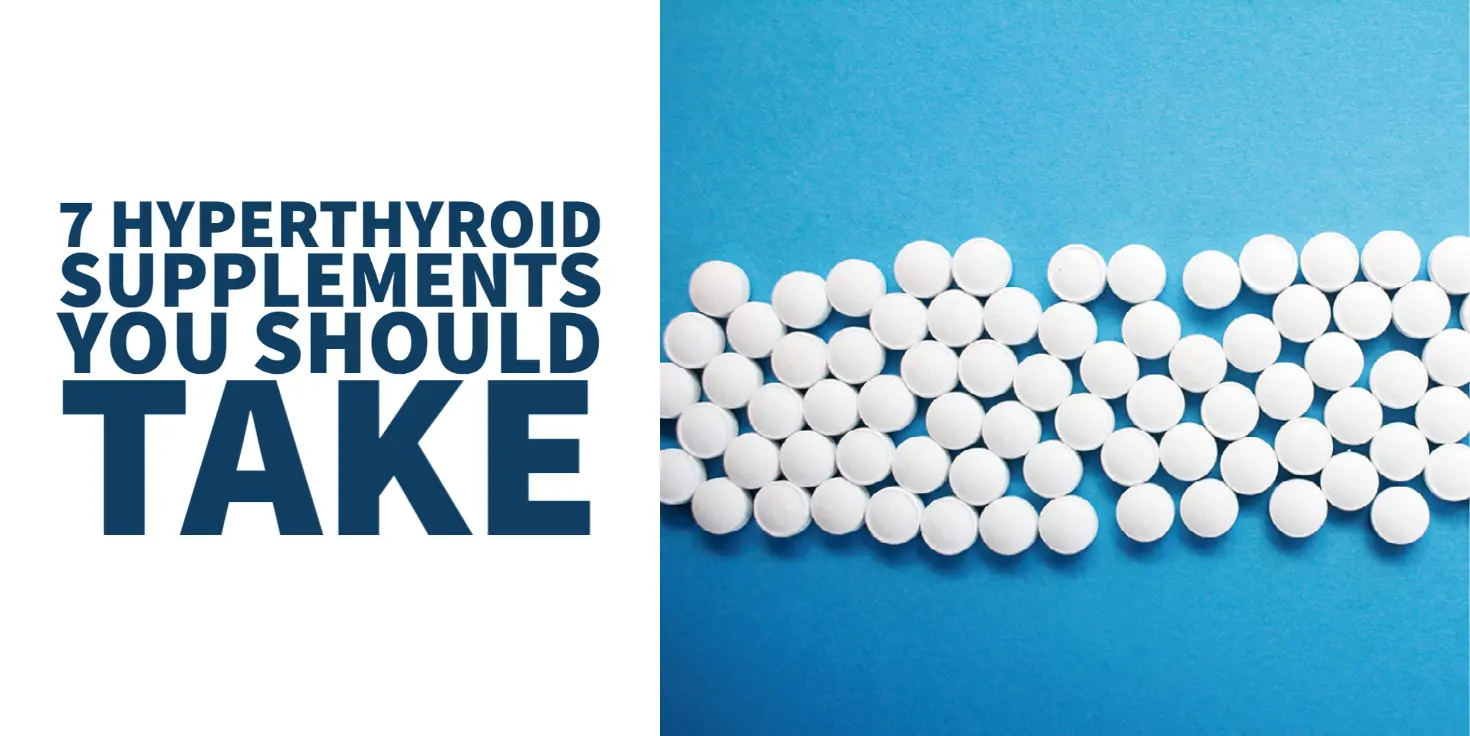
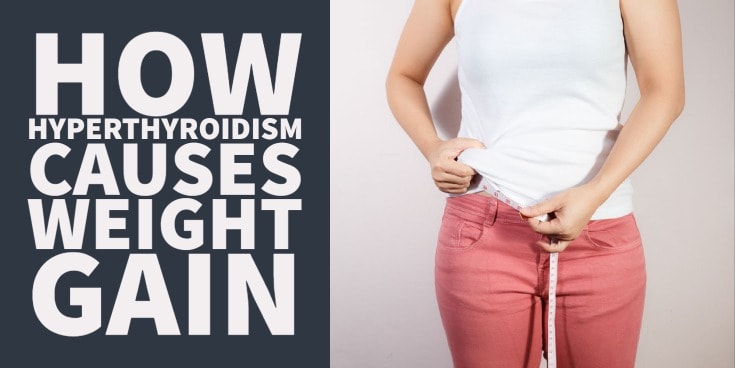

Graves, Dengue fever and Scurvy have remarkably similar symptoms. Any high metabolism breaks down tissue faster, leading to scurvy and acidosis(One of the biggest lies told by western medicine is that acid isnt a problem, we have multiple biological system specifically to prevent it). When Dengue gets dangerous aka hemmorrhagic, its really just scurvy and rhabdomyolysis.
My Grave’s began in 1997 the week that I weaned my first daughter. The almond trees were in bloom and my allergies were terrible as a result. My immune system was totally crazy due to weaning and allergies and an attack on my thyroid was the result. Never did get it calmed, after years of Tapazol treatment and so had TT in 2002. If you are super high you eat tons and lose a little weight. If you are only a little high we may well eat quite a bit and gain. I had three more children and never felt right UNTIL in 2014 I finally took the advice to go dairy free and almost vegan. After three years on a whole foods plant based diet I feel better than I have in 20 years. It was like turning back the clock! I now rarely get sick and I also got rid of almost all my joint pain. I cannot say enough about unprocessed plant foods have helped me! I also now walk 2 miles a day and do yoga, things I could not do before my diet changes. Also, my HDL is now 61 and my LDL is 55. I eat 7 raw walnuts with my breakfast bowl every morning to start the day with some Omega-3s. I wish so much I would have known all this back when I first got Grave’s because I probably could have totally healed naturally without having to go with the TT. But live and learn and I am now passing down these valuable insights to my three daughters so they will be prepared (my grandmother also had Grave’s and my dad died of an autoimmune reaction to a flu shot–autoimmune neuropathy). So thanks again for all the great tips–you are truly helping those of us who have these conditions!
Hi Sheriann,
No problem and I’m glad you find it helpful!
I would love to talk to you, if I can, I had blood work done today and my b12 is extremely low, my TSH is still at 13, I eat as healthy as I can (all healthy and organic). I have been eating Chicken, fruits, carrots, lettuce, shredded coconut, apples, Ino dairy, no gluten/wheat. Can I do nutritional yeast (organic), as this really helped my b12 a few months ago. Now, it’s too low at 77% which really bites. I do not know what to do anymore, I have been praying trying to eat healthy nothing is working, I need some prayers and some help, please. Also, can I eat beef if it is 100% bee and organic? Is that is healthy? I tried grapefruits/lemons, also gluten free oatmeal as well as almond butter and I could not handle any of that stuff. So, I do not know exactly what I can eat without it messing with me.
Thank you for your story. Are you and your dads family Scandinavian by chance? I feel we are susceptible.
I also had an autoimmune reaction to a flu shot. Then was diagnosed with SLE ( Lupus). I did a gut healing protocol called GAPS (similar advice as this but it’s an elimination diet and more intense).
Now I had a post partum hyperthyroid attack and was hospitalized. But I know it was the gluten and other triggers.
The GAPS author Dr Natasha has a chapter on how an immunological panel MUST be done before every vaccine.
Flu shots are a racket. And why the hell would I trust a new covid shot?!
It is a public health disaster
Dr. Child’s,
I have had my thyroid out for 3 years now because I had graves. My biggest problem is no matter how hard I try with diet and exercise I cannot loose a pound. I have gone from a 116-155 pounds in this time period. I went from 137 thyroxin to 75 and then she added 5 much of l-sodium with it. And it has not helped me at all. I have been reading every thing you wrote in hoping you could direct me in the right direction I am only 5 feet and in need of some help.
Katherine
Hi Katherine,
You can learn more information about losing weight with hypothyroidism here: https://www.restartmed.com/hormone-mastery/
Have had graves now for 27yrs and I’m still confused. Do this do that. I’m exhausted.
Hi Sharon,
Your therapy depends largely on how your Graves’ was/is being treated which may explain why you are confused.
I have overcome my brain fog symptoms and am very clear minded now. But, as I read this it is confusing, and I even understand it, but i can see how other people do not. These differences in the states of Graves… why not triage people via the articles and just separate the stages and have people click on a link to go to the stage they are at?
Hi Rachel,
This article was written a while ago before I had more resources for hyperthyroidism. I have further information which outlines the various stages and how these stages are treated. At some point, I will come back to this article and take a look to see if I can clean it up.
What kind of a diet should a person be on if they haven’t had athyroidectomy or RAI but has Graves in remission due to medication. Take in mind that person still has almost every symptom of hyperactive graves but is in normal stages but has gained probably 25 lbs since being in normal stages. We have went nonprocessed-low carb and recently the doctor told that person to become stricter with low carb and go gluten free to improve gut health (labs have been completed showing no celiac disease). Does this sound like that person is on the right track for dieting? Also this person takes THRIVE (Le-vel) supplements. Also wanting to know what food this person should avoid. Thabks a tons, SW
Hi Stacy,
If you are taking medication to reduce thyroid function then you will want to follow a diet designed for those with hypothyroidism.
I have recently been diagnosed with Graves. My iodine is low and My levels are crazy. My T3 is 6.75 and T4 is 47.9.
Yet, I am consistently gaining weight. I’ve read that is might be hormones or insulin, but I’m not diabetic. I’m at a loss as to what to eat since I’m gaining instead of losing.
Hi He,
Diet is only one therapy that may help improve your overall hormone status. You should also consider other factors such as hormone imbalance, exercise, lifestyle factors, etc.
Is there a way to safely taper off methimazole meds for Graves Disease that can optimize remission? My labs are now normal after only 3 months on 30 mg methimazole a day. I’m afraid of becoming hypothyroid now, which I read is very possible. The doctor ( he is not an endocrinologist) reduced my meds to 20 mg / day but I’m wondering if this is too much. Thanks for any info you can provide.
Hi Ann,
Tapering medication will depend on your body and the underlying cause of hyperthyroidism.
Dear Dr. Child’s,
I had open heart surgery Jan 2016 to replace the aortic valve while I was in the hospital my thyroid readings were out of control they put me on the generic for Tapazole 10 mg that medicine raise me so high that they took me off the medication after three visits to the office when I got out of the hospital I went to a new Endro Doctor who diagnosed me with graves disease and told me it was genetic and I was producing too many hormones and he also kept me off the medicine for a year and a half this past December my TSI levels we’re going down but was still high so he started me on 2.5 mg of Tapazol and I had the same reaction that I had before on 5 mg even 10 mg when I returned from my normal visit I told the doctor about my problem I was so fatigued so wiped out which is a reaction I usually get when taking Tapazole his answer was I will take you off the medicine and see you in three months when you return we will talk surgery or iodine treatment I said do you realize I had open heart surgery he said oh that’s OK you can have the surgery I spoke to my cardiologist he said no surgery no iodine treatment and I should ask the doctor when I return what is the bottom line can I stay on the diet that I am now on which is actually the diet you talk about. My question is I don’t have any problems with dairy foods is it OK to eat them while following your diet I try to eat gluten-free products to replace the bread items and wheat I already take vitamin D3 I eat Brazil nuts for selenium and I also take vitamin C Probiotics and the doctor the cardiologist has me taking B6 250 mg three times a week .
Thank you for your assistance on the above .
Linda
Hi Linda,
Rule #1 that all Doctors know about is to basically avoid checking thyroid function in the hospital (except for a few select reasons). The reason is because stress to the body will always alter thyroid function and may not result in accurate measurements.
It would probably be best to recheck your levels under normal circumstances and go from there. But you will want to completely recover from your most recent operation first.
Dear Dr. Child’s
I am 53 years old and I was diagnosed with Graves’ disease I am taking Methimazole 20 mg daily, my question is: can I take all the supplements that you advise without side effects?
Thank you Doctor, your information has been very helpfull.
I was diagnosed with Graves’ 12 years ago and was on a very low dose of PTU for 8 years. I have been remission according to my TSH, T3 and T4 for about 3 years, but my antibody level is in the 400s. I chose not to RAI or surgery. I definitely noticed an improvement in how I felt when I ate gluten-free. In fact, that is when I was officially in remission. The symptoms I experienced when eating gluten were more like a seasonal allergy – sneezing, congestion, fatigue. I have not been feeling well for the past year and think it is because I have been eating gluten again. There is definitely a connection for me. So I have to get back on track. However, is it necessary to get rid of all dairy? I am not a big animal protein eater. I do eat some though.
I have Graves‘ disease. I took medications for 1 year and went in remission. It has been 12 years now. A year ago I removed gluten from my diet because I noticed some unwanted effects.
Last month I unknowingly eat gluten and I had a very strong reaction. A few days later I checked my hormones level because of low sex drive and fatigue. I found out that my TPO was 393 IU / ml while my T3 and T4 were at the perfect rate. I am now on bio identical hormone replacement and the result is already
noticeable.
I was very concerned about my TPO. I searched the net and I found your blog. I am starting your recommendation ASAP.
My question is this: because of the high TPO, my endocrinologist wants me to undergo another nuclear test. But I think this is a waste of money and an unnecessary exposure to
radiation. I don’t want to take the test. Am I right?
Thank you for your reply
Hi Dr. Child’s, I had a thyroidectomy 10 years ago and a hysterectomy 2 1/2 years ago (left 1 ovary). I am now 52. For the past 9 years they have only had to adjust my synthroid one time from 150 to 175. This past year I got really serious about cutting out all sugar and carbs including things like beans, quinoa etc. I have only lost 8 pounds from August thru now, eating 800-1200 calories a day. In the meantime my Dr. has had to adjust my meds from 200 to 175 in October, from 175 to 150 in December and now 150 to 137. I am very frustrated with trying to understand why I am always hyper and still unable to lose weight??? If you can give me any insight as to what’s going on I would sooo appreciate it!!! The last 4 weeks a very strict ketogenic diet but only healthy fats and no loss???
Hi Linda,
It’s hard to say for sure but you are most likely damaging your metabolism by reducing your calories which is reducing thyroid conversion and therefore thyroid function. Those patients who are status post thyroidectomy tend to hold on to weight tighter than those with a functioning thyroid and they are reliant upon thyroid medication more so than those with a thyroid.
Hi, I’m a keen 45yo cyclist with a stressful life that has been sporadically suffering for years with symptoms (fatigue, palpitations, night sweats, muscle spasms) which have been put down as a variety of shrugs and stabs in the dark at syndromes CFS, IBS, stress response adrenal fatigue etc. and only of late has this been diagnosed as Hyperthyroidism and Graves Disease. I am only 10 weeks into treatment with carbimazole (originally also propranolol, but my heart rate has come back down off the ceiling so these have been stopped), but I am disturbed by the fact that this treatment is only looking at lessening the effect of the graves on the thyroid function, and not at the undying condition itself. So I have started looking at autoimmune eating protocols as a “sensible to try” option, especially as I have developed a remarkably swift response to eating sugar; one snickers = asleep in 4 mins regardless of what I’m doing.. I have a couple of immediate questions:-
Half of the literature I read says “eat loads of veg including the broccoli family” (yours included)
The other half say’s “eat broccoli, are you mad?” that is a goitrogenic so should be avoided for both hyper and hypo.
Any thoughts?
The second is I have been fuelling my cycling exploits through carbs for 30 years. How can I ensure the energy requirements of routine long rides are met by a carb restricted diet, and should I even try? (I have no inclination to hang up my wheels just yet, even though disastrously slow and uncompetitive at the moment)
I am under going testing for hyperT and have noticed if I eat broccoli or potatoes my heart rate shoots through the roof!
Dr. Childs, thank you for such an informative discussion. I have multiple nodules on my thyroid for 11 years and only 1 year ago I was diagnosed with hyperthyroid. I am currently on medication and my TSH is normal. should I focus on the hyperthyroid or hypothyroid diet?
I am 71 and was not diagnosed Hyperthyroid/graves for many years but have keep my thyroid and am beening treated now with 5mg tapozole (one every second day). My endocrinologist is happy with my thyroid levels but has suggested I stay on this dose because the last two times he took me off,I went into afib and that was fixed in emergency department. I did not gain weight for a long time but now I have gained.Is there any hope of getting this weight gain under control for an old gal like me.
Dr. Childs,
Thank you for this article. It has given me a little hope. I am a type 1 diabetic (41 years) with MS (11 years). I was just told I have elevated thyroid levels. Does this mean I likely have Graves? I understand autoimmune diseases come in twos and threes. I’m hoping I can reverse my elevated levels with the dietary changes you mentioned in your article. I am scheduled to see an endocrinologist. Oddly I have gained weight and am struggling to lose it. I’m terrified to take any more medication as I am currently on 9 Rx including Tysabri infusions for MS. I do not want to take any more medication or lose my thyroid, as I am so concerned with weight gain and how it affects my other disease. I already struggled with an eating disorder as a result of this concern. I do not want to retrigger the eating issues. Any additional advice is welcomed. I will, however, start with the recommendations you have set forth. Again, thank you.
Hi. I have thyrotoxicosis am on PTU gaining weight, help!
Hi Maria,
I would recommend you check out this article which explains why that happens in almost all people who take PTU: https://www.restartmed.com/hyperthyroidism-weight-gain/
Dr. Child’s,
I just got diagnosed with graves disease and hyperthyroidism. I’m reading your article and I feel like i found faith in it. Every where I’ve been reading and all my doctors tell me it’s incurable, but when I read how you said “maybe”, it gave me hope. I have never had anything like this, I’m only 23 years old. I am 5ft1 and weight 100 lbs. Everything is fine except that fact that since I started methamizole medication, I just noticed a half spot. I was wondering if I followed your suggestions would there be a high chance of me curing myself considering that I am young ?
Hi Angy,
It’s really impossible to say without a lot more information. The good news is that you can start dietary changes and supplements even if you are taking medication and using conventional therapies.
I have recently been diagnosed with Graves’ disease.. so right away, I have been placed on medication.. at this point (about 2 months ) into the treatment. I am not handling the medications very well..they make me so sick I almost cry before taking them. I am interested in trying the alternative .. and changing my diet.. should I stop all medication before I start?
Hi Laura,
It would not be a good idea to make any changes to your medication regimen before consulting with your physician. You can definitely try some alternative therapies, but make sure your doctor is aware of what you are doing. You don’t want to inadvertently put yourself in a dangerous situation.
I wanted to add after I read Linda’s note above, that I could not function at all on the methimazole. I was so sick on that, bleeding from the ureter, flu-like symptoms, severe fatigue, that I could not do it. They switched meds to the propylthiouracil and I have had no side effects. It is a little riskier medicine, but I feel for the gal above with the methimazole.
Hi Brenda,
Thanks for sharing! While sometimes these medications are necessary, they can absolutely can issues if they are used long-term and generally not considered “long-term solutions” for that very reason.
Dr. Childs, I am post iodine treatment by 2 months for Graves. I am still not hypothyroid, and am being treated with the Propylthiouracil due to intolerance of the other med. I cannot not make the scale budge regardless of if I do no extra exercise, or if I do the treadmill and 2 other walks in a day along with many many other activities. I am killing it on my fitbit and eating very well, and calorie intake under what I burn, and the scale literally will not even budge the ‘.’ number. If I do nothing, the scale says 156.6 and if I kick major ass and get 25,000 steps in a day the scale says 156.6. The scale is not broken, I truly don’t understand why I can’t fight like hell and get this weight off. Prior to beginnng treatment, this regimen would have been good for a 20 pound weight loss in 3 weeks. I am so frustrated. My diet is just low cal, not certain foods. I have always believed in calories in calories out. Why is this not working?
Hi Brenda,
Calories in calories out results in about a 99% failure rate when it comes to weight loss and is one of the big reasons we have so many issues with obesity in the country at this time. Weight regulation is more about hormone management than it is calorie counting, so when you focus on improving hormone function the weight comes off and stays off. I would switch your focus to one of looking at your hormones as opposed to counting calories.
Thank you so much, sir, for the quick response. I really appreciate it. It would be new for me for cal in cal out to not work, so I now understand this is a different ballgame. I will read more of your research and work. Again, thank you and this is a VERY informative site.
Dr. Childs,
My 10yr old daughter has just been diagnosed with Graves’ disease and has just started taking methimazole. Her endocrinologist is talking about the removal of her thyroid, one of my worries for her is if this happens and she is then classed as having hypothyroidism how to help her maintain a healthy weight. Any advice or places for me to look to help her find dietary advice specifically for children? I’m going to try and implement a gluten-free diet and she already eats lots of fruit and vegetables but she needs to feel normal amongst her peers.
Thank you
Hi Carolyn,
Unfortunately, I don’t have any resources to point you to otherwise I would happily do so.
Thank you for the articles. I found them today after struggling for the past 15 months with Graves. I have been on methimazole starting out 5 mg increased to 10 at which time my eyes started to experience double vision. I found an article that indicated being over medicated can increase the risk of eye disorders. I brought this up with my endo at which time my TSI was over 700… Reduced to 5mg and now 5mg then 2.5mg alternately. I have had a huge improvement in my vision, no longer needing to wear a prism. However, I am still experiencing a multitude of side effects predominately weight gain almost 20 pds, joint pain, mood swings, fatigue,sweats, lack of cycle and major depression. I really want to get off the meds entirely as I know they are a huge contributor to all the above. I need to get my Dr’s to order the tests necessary to get me in the right directions. Where do I start?
Hi Tracey,
The best place to start is by optimizing your diet and by taking simple nutrients that can help improve your thyroid and immune system. Then, as your condition improves, you may be able to reduce your dose. You will need to find a physician who can work with you and is willing to allow you to make these changes, though.
Our Down Syndrome son at the age of 27 was told he has Graves. I’m concerned with the weight gain after being put on methimazole 50 mg once a day and 50mg’s twice a day the next day. I’m worried about the puffiness in his face and sweating still. It takes months to get into the Dr. He is the only one in our town. Any advice to ease my mind.
I have both hyperthyroid and graves disease.
Can you please tell me what should be my workout routine?
I normally go to gym and do weight training.
I’m a vegetarian so can I take protein shakes that are availabe in market because I can’t eat eggs and fish?
Hi Aastha,
I would take a look at this blog post which outlines how to exercise with thyroid disease: https://www.restartmed.com/exercise-thyroid-problems/
Also, here is a vegan protein powder which I recommend for hypothyroidism: https://www.restartmed.com/product/functional-fuel-complete/
Hope this helps!
I have diagnosed a Grave disease. My Endo confirmed that I have autoimmune disease from my lab result TRAB. I’m happy that I read your website. I’m going to try your advice and see the result after 30 days. Thank you so much for sharing your guide. More power and God Bless you.
Hi Maristhel,
You are welcome! I hope it helps and please keep us updated on your progress.
Hello,
Thanks for your recommendations I have been recently diagnosed with Graves Disease. I have been prescribed Carbizamole for one year to take 40mg once a day. Do you recommend taking this alongside the treatments and diet plans you mentioned. Or is it one or the other?
Hi, I started out 30 years ago with Hashimotos diagnosed by my naturopath. I was on NTR (Armour) for decades and it managed my disease. I was mostly eating a vegan/vegetarian diet of mostly Whole Foods. I fluctuated in weight over the years, but was physically active and maintained a mostly healthy diet with occasional slips for several months into pastries and sugar. Last year I was diagnosed with Graves (I had switched to a t3 only medication regime supervised by my Functional Medicine doctor. I did lose some weight, but also had a resting heart rate of 120. I was prescribed metaprolol. Obviously stopped the t3 immediately. I researched natural options as doctors were recommending radioactive iodine or methimazole, neither of which I wanted. Found a new FM doc. She recommended bugleweed and lemon balm. It took a month for t3 andt4 to get into normal range. Antibodies were still high as well as TSH being depressed, but TSI was now high normal down from out of range. I no longer need the metaprolol, though did need to increase bugleweed and lemon balm and add motherwart to get heart palpitations under control. I’ve been gluten and dairy free for more than a year. I’ve gained 20 pounds, so am now 168. But I’m only 5’2” (lost an inch due to shrinkage) and feel best at around 135 (though in my youth, 122-125 was good for me – I have a medium, not small bone structure). So I’m very frustrated at the weight gain. I literally don’t know what to try next except for the testing you’re recommending. I do I think, overdo the fats and sugars but try to be careful. I have, in the past year added mor healthy fats like avocado and organic chicken and salmon, but am reconsidering a return to low fat vegan (The China Study and Dr. Esselstyn’s work). I also exercise daily for an hour on the treadmill at 3.5 mph, plus light weight lifting, plus a walk of half mil once or twice a day with the dog. Any insights? I’m already taking most of the supplements you recommend. My D3 was only in the 40s but now is 95. Can you help me?
Curious if these supplement recommendations are the same doses for children? And do you recommend taking all of the ones you have listed?
Hi Dr.
I was diagnosed today with hyperthyroidism ☹
It seems most likely due to an infusion I had 3 years ago for another autoimmune disease. It does state thyroid dysfunctions as being a very comment side effect.
How would the information given on this site differ for me? Do I have hope? And how might I alter things based on my diagnosis?
My symptoms began 4 months ago and worsened over this last week. Please advise me, as I’m at a loss and it may he able to save me from years of pain.
Thank you
I was diagnosed with Graves & Hyperthyroidism after ending up in the hospital when I was 3 months pregnant with my 4th child. It was under control for the rest of the pregnancy but came back with a vengeance when I was about 6 months postpartum. I lost so much hair at one time I felt dizzy and nauseous just looking at it. I’ve been off and on with an anti inflammatory diet but it’s been so difficult because inflammation causing foods are literally baked into the American diet (pun intended). I sometimes feel like I can’t eat anything. It’s going to be my 41st birthday next Monday and I’m going to have to figure out how to celebrate without food and obviously cake because I must get well. I want my thick hair back, my youthfulness and my energy. I’ve also been having issues seeing properly . I’ve been off and on with your supplements Dr But I am committing to them and focusing on an anti inflammatory diet.
Hi DS,
That sounds like a good plan! In addition to supplements, make sure that you are also eating healthily, exercising regularly, reducing stress, and getting enough sleep.
I am hyperthyroid with a nodule, no autoimmune disease according to my Endo, my question is, would your diet plan you offer work for me or is it just for hypo patients. I do take your hyperthyroid bundle supplements but I am type 2 diabetes so want to drop the weight. Thank you.
Hi Debbie,
Yes, the information presented here would be helpful for your situation as long as you are hyperthyroid.
Hello,
Thank you for the article! I’m wondering if ghee and ethyritol are something that need avoiding too (since ghee seems to have a very small amount to none of casein nor lactose, and ethyritol are considered the “healthier” sugar alcohol than the other sugar alternatives.
Thanks!
Hi Dr. Childs.
I started your Graves diet 4 days ago and my blood pressure is really low. I feel like I’m melting away. I follow the diet 100% but I haven’t had sweet potatoes yet only because I haven’t bought yet. Can a low carb diet cause this?
Also, I’ve had Graves for 15 years now and only recently discovered your information so I was unaware of how important food is meaning that I ate gluten and sugar etc. Needles to say, I had flare ups all this time. My meds (Neo Meecozole and ThyroCalm) only help when I am super calm and then when I stress again things go downhill. My muscles have also deteriorated to a scary degree. How long should I give your diet before I consider an operation? Is 90 days enough to see if my Graves will start to go into remission?
Thank you so much.
Hi Marelize,
It’s possible, yes. It can take several weeks for the body to adapt to a low carbohydrate diet and you may experience all types of symptoms during this transition. It’s often referred to as the low carb flu. You may find supplementing with additional nutrients such as magnesium and salt to be beneficial.
You would want to give yourself at least 3-6 months before determining if it’s helping or not.